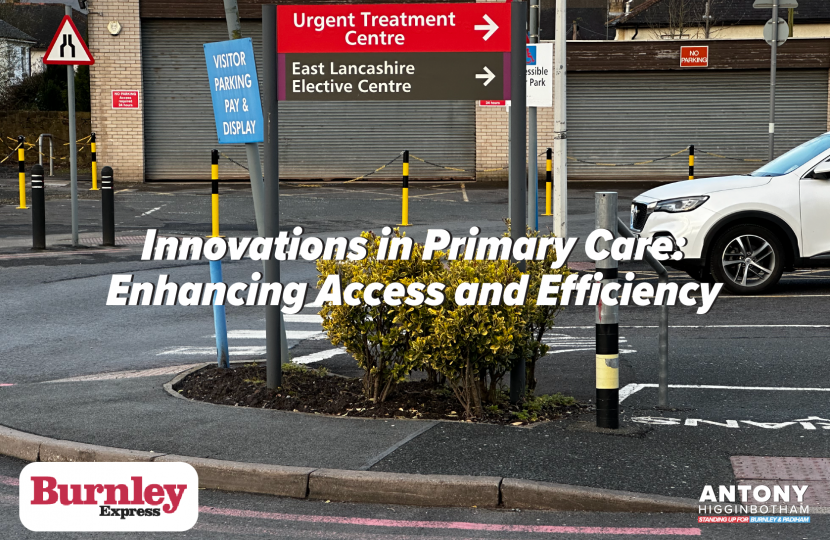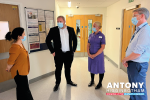
Healthcare is one of those few public services you can guarantee to use and need during your lifetime. But since Covid the entry point for most people – the GP surgery – has proven to be a challenge.
This isn’t for want of trying by GPs, their teams, or Government. As with most healthcare challenges it comes down to an ageing population, and more complex but beneficial medicine. Conditions which were previously untreatable, now have clear pathways. But if we are to make the best of these advances in modern medicine, we have to reform the way primary care works. Without this, patient demand will increase but service availability won’t.
It's for this reason I have spoken in Parliament about the need to train more doctors locally; and why I’ve raised with Ministers the difficulties that some face in getting a face-to-face appointment with your GP, including as a result of the ‘8am rush’.
And Government recognises this too, with major reforms now announced. Alongside the recruitment of extra clinicians and investment in new IT technology, for the first time ever, pharmacies will be able to dispense prescription medication for things such as earache or sore throats, without the need for a GP appointment.
Anyone who knows a qualified pharmacist will know the rigorous and difficult exams they had to pass, and information to learn. So not only is this sensible, but it will also free up thousands of appointments.
There’s also a fundamental shift in thinking. The new plan includes putting you, the patient, in charge. Take just one example – test results. Currently you need to wait for a telephone call, taking up GP time even if nothing is wrong, and causing anxious waits in the process. But moving forwards you get to see them yourself, using the NHS app.
Diagnostics also play a huge role in identifying and treating disease and is why I’ve been so vocal about Burnley General being able to expand the number of tests that can be carried out at the hospital. That’s why I’m continuing with my campaign for a brand-new radiology centre, with the latest diagnostic machines, which will link with the surgical theatres to create a diagnostic and treatment hub in Burnley. Because if successful it will mean we can all have our healthcare needs identified and treated even quicker if so required.
There’s no silver bullet, but I’ll keep working to ensure whether it is a doctor or a dentist, every resident can access the primary healthcare they need.


